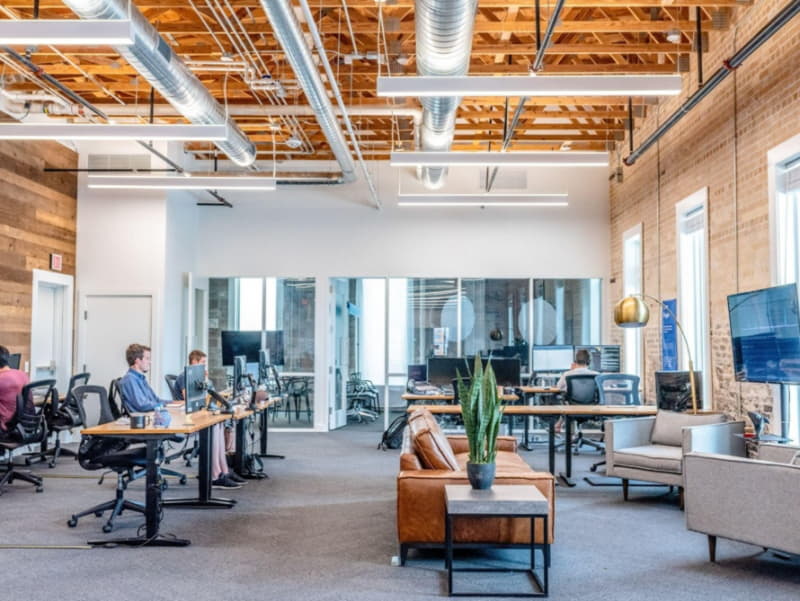Demand for renting office space is starting to rise significantly. Find out what trends are expected in terms of office space leasing, as well as changes in the use of office space.

Over the past two years, the world has undergone radical changes regarding the conduct of business. We have seen a huge number of companies have been forced to close, abrupt changes in the work of employees who have changed from ordinary offices to home environments, as well as numerous disruptions in supply chains. Now those who are engaged in renting out office space, meeting rooms, coworking spaces, and other commercial real estate are trying to overcome all difficulties in different ways, as well as to adapt to rapidly changing trends.
In March of this year, we could observe a surge in demand for office space rental. This demand is up 20% compared to February. Websites like www.matchoffice.com are showing more and more new rental spaces, be it a meeting room, an office, a business center, and so on for various needs. Many companies both rent office space and rent them out around the world.
We'll talk about what's in store for the market, what trends are emerging, and whether companies will be returning to office work.
Changes to office spaces

The needs of tenants are now changing radically. They are rethinking how they use office space. That is why landlords are trying to actively invest in improving office space for rent to remain competitive.
Among the options on the market, you can find quite old and inefficient office spaces, the demand for which falls. Landlords are actively considering options that offer the following:
- Modern design;
- High tech;
- Sustainable offices;
- Wellness certifications;
- Modern ventilation systems.
Such factors seriously influence the behavior of companies that are going to rent office space. The classic offices that we have seen before no longer meet the needs of companies and their employees.
The transition from remote work to office work

The question of whether numerous companies will adhere to the remote mode of work is now quite relevant. Working from home has many benefits for employees. They have flexibility, comfort, and convenience. They don't have to waste time commuting to and from work, and they can save on their wardrobe.
However, the productivity of companies still suffers. Although companies use many technologies, such as video conferencing, the difficulties in teamwork remain relevant. This way of working does not allow companies to innovate, conduct high-quality employee training, and maintain a corporate culture at the proper level.
Employees remain isolated from each other. This does not allow the development of relationships between employees, as well as establishing a strong relationship with the employer. Thus, the longer this mode of operation remains, especially for full-time companies, the more difficult it will be for employers to retain talent within companies.
Hybrid model

Given the fact that the epidemiological situation is beginning to improve and ceases to be critical, about 90% of companies are going to stick to the hybrid model of work. Thus, companies will rent office space for group interaction. This means that such spaces will be used for teamwork, corporate events, staff development, as well as training for newcomers. Apart from that, everything else will remain flexible, meaning employees will be able to work from home or in the office as they wish.
Companies will need less office space. Offices will be used for teamwork and therefore cubicle farms will sink into oblivion. Meeting rooms, conference rooms and small office spaces with open desks will be in high demand for rent.
Recently, Global Commercial Real Estate Services surveyed more than 180 companies renting office space in the United States. The survey results show that already about 40% of companies are starting to work on returning to the offices. More than 25% of companies report that they are going to return to offices by the end of June. Some companies rely on the decision of their employees. Such companies make up 13% of all respondents. A small number of companies are still unsure of what they will do next.
Conclusion
A return to the offices is inevitable. However, it won't be like it used to be. Tenants are rethinking how they will use their workspaces. This includes the use of smaller office space as well as equipping such space with new technology. Landlords are going to reconfigure spaces as well as invest in refurbishment to remain competitive.


